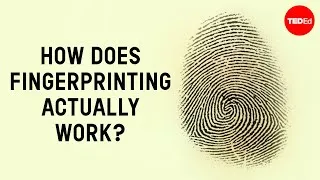When do kids start to care about other people's opinions? | Sara Valencia Botto
152,830 views ・ 2019-09-13
请双击下面的英文字幕来播放视频。
翻译人员: 功伟 邢
校对人员: Yanyan Hong
00:12
I'd like you to take a moment
0
12262
1450
我想请你花点时间,
00:13
and consider what
you are wearing right now.
1
13736
3000
想想你现在穿的是什么衣服。
00:17
I have a deep, philosophical
question for you.
2
17675
2872
我有一个深刻的哲学问题要问你。
00:21
Why are we not all wearing
comfortable pajamas right now?
3
21079
2682
为什么我们现在都没有
穿着舒适的睡衣呢?
00:23
(Laughter)
4
23785
1000
(笑声)
00:24
Well, I'm a psychologist
and not a mind reader,
5
24809
2538
我是个心理学家,
但我不会读心术,
00:27
although many people think
that's the same thing.
6
27371
2372
尽管很多人认为这是一回事。
00:30
I can bet you that your response
is somewhere along the lines of,
7
30069
3667
我敢打赌,你的回答大概是,
00:33
"I'm expected to not wear pj's in public"
8
33760
2674
“我不应该在公共场合穿睡衣”
00:36
or "I don't want people
to think I am a slob."
9
36458
2548
或“我不希望人们认为我是个懒汉”。
00:39
Either way, the fact that we all
chose to wear business casual clothing,
10
39665
4051
无论如何,我们都选择穿
商务休闲装的这个事实,
00:43
as opposed to our favorite
pair of sweatpants,
11
43740
2151
而不是穿最喜欢的运动裤,
00:45
is not a silly coincidence.
12
45915
1800
这并不是一个愚蠢的巧合。
00:48
Instead, it reveals two
defining human characteristics.
13
48311
3897
相反,它揭示了人类的两个特征。
00:52
The first is that we are cognizant
of what other people value,
14
52704
3595
首先,我们知道别人看重什么,
00:56
like what they will approve
or disapprove of,
15
56323
2627
比如他们会赞成或不赞成什么,
00:58
such as not wearing pj's
to these sorts of settings.
16
58974
3016
比如不穿睡衣去类似的场合。
01:02
And two, we've readily used
this information to guide our behavior.
17
62490
3714
第二,我们很容易地用这些信息
来指导我们的行为。
01:07
Unlike many other species,
18
67149
1699
与许多其他物种不同,
01:08
humans are prone to tailor their behavior
in the presence of others
19
68872
4040
人类倾向于在他人面前
调整自己的行为,
01:12
to garner approval.
20
72936
1379
以获得认可。
01:14
We spend valuable time putting on make up,
21
74766
2318
我们花了很多宝贵的时间化妆,
01:17
choosing the right picture
and Instagram filter,
22
77108
2904
挑选好看的照片和 Instagram 滤镜,
01:20
and composing ideas
that will undoubtedly change the world
23
80036
2762
以及分享一些无疑会改变世界的想法,
01:22
in 140 characters or less.
24
82822
1733
使用不超过 140 个字符。
01:25
Clearly, our concern
with how other people will evaluate us
25
85561
3024
很明显,生活的一个重要组成部分
01:28
is a big part of being human.
26
88609
1933
就是在意他人如何评价我们。
01:31
Despite this being
a big human trait, however,
27
91530
2690
然而,尽管这是人类的一大特点,
01:34
we know relatively little
about when and how
28
94244
2770
我们对自己从何时以及如何
01:37
we come to care
about the opinion of others.
29
97038
2230
开始在意他人的看法却知之甚少。
01:39
Now, this is a big question
that requires many studies.
30
99649
3200
这是一个需要很多研究的大问题。
01:43
But the first step
to uncovering this question
31
103269
2301
但是揭开这个问题的第一步,
01:45
is to investigate when in development
32
105594
2175
是从逐渐成长的过程中调查,
01:47
we become sensitive
to others' evaluations.
33
107793
2717
我们从何时对他人的评价变得敏感。
01:51
I have spent the past four years
at Emory University
34
111245
2880
过去四年里,我在埃默里大学
(Emory University)
01:54
investigating how an infant,
35
114149
2087
研究一个婴儿
01:56
who has no problem walking
around the grocery store in her onesie,
36
116260
4286
是如何从一个穿着连体衣
在杂货店里走来走去的人,
02:00
develops into an adult
that fears public speaking
37
120570
2851
成长为一个因害怕负面评价,
02:03
for fear of being negatively judged.
38
123445
2101
而不敢在公众场合发言的成年人
(就像我)。
02:06
(Laughter)
39
126472
1637
(笑声)
02:08
Now, this is usually a point
when people ask me,
40
128133
2341
到这步,人们通常会问我,
02:10
"How do you investigate
this question, exactly?
41
130498
2579
“那你是如何调查这个问题的?
02:13
Infants can't talk, right?"
42
133101
1800
婴儿不是不会说话,对吧?”
02:15
Well, if my husband
were up here right now,
43
135530
2150
如果我丈夫现在在这里,
02:17
he would tell you that I interview babies,
44
137704
2667
他会告诉你我在采访婴儿,
02:20
because he would rather not say
that his wife experiments on children.
45
140395
4432
因为他不想说他的妻子
在用孩子做实验。
02:24
(Laughter)
46
144851
2552
(笑声)
02:27
In reality, I design
experiments for children,
47
147427
3231
其实,我为孩子们设计的实验,
02:30
usually in the form of games.
48
150682
1934
通常是以游戏的形式。
02:33
Developmental psychologist
Dr. Philippe Rochat and I
49
153269
2745
发展心理学家
菲利普·罗查特博士和我,
02:36
designed a "game" called "The Robot Task"
50
156038
3111
设计了一个名为
“机器人任务”的“游戏”,
02:39
to explore when children
would begin to be sensitive
51
159173
2643
用以探索孩子们什么时候开始
02:41
to the evaluation of others.
52
161840
1867
对他人的评价变得敏感。
02:44
Specifically, the robot task
captures when children, like adults,
53
164442
4492
具体来说,这个实验用来发现
什么时候孩子们,会像成年人一样,
02:48
strategically modify their behavior
when others are watching.
54
168958
3135
在别人观看的时候战略性地
改变他们的行为。
02:53
To do this, we showed
14 to 24-month-old infants
55
173030
3214
为了做到这一点,
我们向 14 到 24 个月大的婴儿
02:56
how to activate a toy robot,
56
176268
2175
演示了如何激活一个玩具机器人,
02:58
and importantly, we either
assigned a positive value,
57
178467
2483
重要的是,我们要么给一个正反馈,
03:00
saying "Wow, isn't that great!"
58
180974
2246
说,“哇,真棒!”
03:03
or a negative value, saying,
"Oh, oh. Oops, oh no,"
59
183244
2674
要么给一个负反馈,
说,“哦,噢。天哪,不,”
03:05
after pressing the remote.
60
185942
1734
当按下遥控器的时候。
03:08
Following this toy demonstration,
61
188220
1577
在这个玩具演示之后,
03:09
we invited the infants
to play with the remote,
62
189821
2548
我们邀请婴儿玩遥控器,
03:12
and then either watched them
63
192393
1422
然后要么看着他们,
03:13
or turned around and pretended
to read a magazine.
64
193839
2817
要么转过身假装在看杂志。
03:17
The idea was that if by 24 months,
65
197212
2429
这个想法是,
如果在 24 个月大的时候,
03:19
children are indeed sensitive
to the evaluation of others,
66
199665
3277
孩子们确实对他人的评价敏感,
03:22
then their button-pressing behavior
should be influenced
67
202966
2675
那么他们按按钮的行为
03:25
not only by whether or not
they're being watched
68
205665
2381
不仅会受到是否被观察的影响,
03:28
but also by the values
that the experimenter expressed
69
208070
2690
还会受到实验者对按遥控器所表达的
03:30
towards pressing the remote.
70
210784
1625
反馈的影响。
03:33
So for example,
71
213173
1206
例如,
03:34
we would expect children to play with
the positive remote significantly more
72
214403
3628
我们发现孩子们在被观察的情况下
03:38
if they were being observed
73
218055
1365
玩积极的遥控器玩得更多,
03:39
but then choose to explore
the negative remote
74
219444
2143
但是一旦没有人看,他们就会
03:41
once no one was watching.
75
221611
1667
选择探索消极的遥控器。
03:43
To really capture this phenomenon,
we did three variations of the study.
76
223952
3460
为了深入了解这一现象,
我们设计了三种不同的条件。
03:47
Study one explored how infants
would engage with a novel toy
77
227871
3349
第一项研究探讨了
如果没有反馈或指令,
03:51
if there were no values
or instructions provided.
78
231244
2603
婴儿将如何尝试新玩具。
03:53
So we simply showed infants
how to activate the toy robot,
79
233871
2730
我们只是简单地
向婴儿展示如何激活玩具机器人,
03:56
but didn't assign any values,
80
236625
1587
但没有给他们任何反馈,
03:58
and we also didn't tell them
that they could play with the remote,
81
238236
3111
我们也没有告诉他们可以玩遥控器,
04:01
providing them with a really
ambiguous situation.
82
241371
2563
这给他们提供了一个非常模糊的情况。
04:03
In study two,
83
243958
1183
第二项研究中,
04:05
we incorporated the two values,
a positive and a negative.
84
245165
4595
我们将两个反馈放在一起测试,
一个是正的,一个是负的。
04:10
And in the last study,
we had two experimenters and one remote.
85
250609
3269
在最后一项研究中,
我们有两个实验者和一个遥控器。
04:14
One experimenter expressed a negative
value towards pressing the remote,
86
254196
3429
一名实验者对按遥控器的行为
表现出消极,
04:17
saying, "Yuck, the toy moved,"
87
257649
1507
说:“哎呀,玩具动了”。
04:19
while the other experimenter
expressed a positive value, saying,
88
259180
3017
而另一名实验者
则表现出积极的反馈,
说,“耶,玩具动了”。
04:22
"Yay, the toy moved."
89
262221
1400
04:23
And this is how the children reacted
to these three different scenarios.
90
263927
3531
以下是孩子们
对这三个不同的场景的反应。
04:27
So in study one, the ambiguous situation,
91
267482
2840
在研究一,在这个模糊不清的情境中,
04:30
I'm currently watching the child.
92
270346
2411
我正在观察这个孩子。
04:32
She doesn't seem to be too interested
in pressing the remote.
93
272781
2999
她似乎对按遥控器不太感兴趣。
04:36
Once I turned around --
94
276622
1669
我一转身,
04:39
now she's ready to play.
95
279061
1611
她就准备好要去按遥控器了。
04:40
(Laughter)
96
280696
1150
(笑声)
04:43
Currently, I'm not watching the child.
97
283903
1910
目前,我没有在注视这个孩子。
04:45
She's really focused.
98
285837
1151
她真的很专注。
04:47
I turn around.
99
287012
1150
我转过身来了。
04:49
(Laughter)
100
289588
1032
(笑声)
04:50
She wasn't doing anything, right?
101
290644
2200
她什么都没做,对吧?
04:55
In study two, it's the two remotes,
102
295596
1751
在研究二中,是两个遥控器,
04:57
one with the positive
and one with the negative value.
103
297371
2547
一个带着积极的评价,
一个带着消极的评价。
04:59
I'm currently observing the child.
104
299942
1667
我正在观察这个孩子。
05:01
And the orange remote
is a negative remote.
105
301633
2506
橙色的遥控器是消极的。
05:05
She's just looking around,
looking at me, hanging out.
106
305259
2793
她只是环顾四周,
看着我,在外面闲逛。
05:08
Then I turn around ...
107
308494
1267
然后我转身……
05:12
(Laughter)
108
312081
1150
(笑声)
05:15
That's what she's going for.
109
315072
1867
这就是她想要的。
05:19
I'm not watching the child.
110
319875
1537
我没在看孩子。
05:21
He wants the mom to play with it, right?
111
321436
2244
他想让妈妈陪他玩,对吧?
05:23
Take a safer route.
112
323704
1267
真是安全的选择。
05:25
I turn around ...
113
325736
1150
我回头……
05:28
(Laughter)
114
328093
1667
(笑声)
05:29
He wasn't doing anything, either.
115
329784
2200
他也什么都没做。
05:36
Yeah, he feels awkward.
116
336371
1532
是啊,他觉得很尴尬。
05:37
(Laughter)
117
337927
1007
(笑声)
05:38
Everyone knows
that side-eyed glance, right?
118
338958
2119
每个人都看到那侧眼一瞥,对吧?
05:41
Study three, the two
experimenters, one remote.
119
341807
2461
研究三,两个实验者和一个遥控器。
05:44
The experimenter that reacted negatively
towards pressing the remote
120
344292
3261
实验者看着孩子时,
05:47
is watching the child right now.
121
347577
1627
对按遥控器表现出消极的态度。
05:49
She feels a little awkward,
doesn't know what to do, relying on Mom.
122
349228
4174
她觉得有点尴尬,
不知道该怎么办,全靠妈妈。
05:56
And then, she's going to turn around
123
356307
2421
然后,她会转过身来让
05:58
so that the experimenter that expressed
a positive response is watching.
124
358752
3467
表现出积极反应的实验者看着她。
06:04
Coast is clear -- now she's ready to play.
125
364109
2230
危险已经过去——
现在她准备好要玩了。
06:06
(Laughter)
126
366363
1063
(笑声)
06:07
So, as the data suggests,
127
367450
1905
因此,正如数据显示的那样,
06:09
we found that children's
button-pressing behavior
128
369379
2333
我们发现孩子们按按钮的行为
06:11
was indeed influenced by the values
and the instructions of the experimenter.
129
371736
4809
确实受到了实验者的
反馈和指示的影响。
06:16
Because in study one,
children did not know
130
376934
2541
因为在第一项研究中,孩子们不知道
06:19
what would be positively
or negatively evaluated,
131
379499
2888
什么是正面评价,什么是负面评价,
06:22
they tended to take the safest route
132
382411
1944
他们倾向于选择最安全的路径,
06:24
and wait until I turned my back
to press the remote.
133
384379
2680
他们等到我转过身再去按遥控器。
06:27
Children in study two
134
387083
1388
研究二的孩子们,
06:28
chose to press the positive remote
significantly more when I was watching,
135
388495
3802
在我看着的时候,
明显更愿意按积极的遥控器,
06:32
but then once I turned my back,
136
392321
1571
但当我一转身,
06:33
they immediately took the negative remote
and started playing with it.
137
393916
3423
他们立刻拿起消极的遥控器开始玩。
06:37
Importantly, in a control study,
138
397363
1590
重要的是,在一项对照研究中,
06:38
where we removed
the different values of the remotes --
139
398977
2941
我们把遥控器不同的反馈统统去掉,
06:41
so we simply said, "Oh, wow"
after pressing either of the remotes --
140
401942
3238
——按遥控器后
我们简单地说,“噢,哇” ——
06:45
children's button-pressing behavior
no longer differed across conditions,
141
405204
3451
儿童按按钮行为不再
在各种条件下发生变化,
06:48
suggesting that it was really
the values that we gave the two remotes
142
408679
3731
这表明在之前的研究中,
影响儿童行为的确实是我们
06:52
that drove the behavior
in the previous study.
143
412434
2730
给的两个遥控器所设定的反馈值。
06:55
Last but not least,
144
415188
1168
最后但很重要的一点是,
06:56
children in study three chose to press
a remote significantly more
145
416380
3800
研究三的孩子们在看到
表现出积极价值的实验者
07:00
when the experimenter that expressed
a positive value was watching,
146
420204
3310
和表现出消极价值的实验者时,
07:03
as opposed to the experimenter
that had expressed a negative value.
147
423538
3267
会明显地更多地按遥控器。
07:07
Not coincidentally,
148
427553
1278
并非巧合的是,
07:08
it is also around this age
that children begin to show embarrassment
149
428855
3643
也正是在这个年龄,孩子们开始在
07:12
in situations that might elicit
a negative evaluation,
150
432522
2993
可能引发负面评价的
情况下表现出尴尬,
07:15
such as looking
at themselves in the mirror
151
435539
2007
比如看着镜子里的自己,
07:17
and noticing a mark on their nose.
152
437570
1651
注意到自己鼻子上的一个标记。
07:19
The equivalent of finding spinach
in your teeth, for adults.
153
439245
2810
对成年人来说,
这相当于在牙齿里发现菠菜。
07:22
(Laughter)
154
442079
1174
(笑声)
07:23
So what can we say,
based on these findings?
155
443277
3048
基于这些发现,
我们能说些什么呢?
07:26
Besides the fact that babies
are actually really, really sneaky.
156
446349
3452
除了婴儿实际上非常狡猾之外?
07:29
(Laughter)
157
449825
1056
(笑声)
07:30
From very early on, children, like adults,
158
450905
3293
从很小的时候起,
孩子就像成年人一样,
07:34
are sensitive to the values
that we place on objects and behaviors.
159
454222
3727
对我们对物体
和行为的反馈很敏感。
07:38
And importantly, they use these values
to guide their behavior.
160
458354
3277
重要的是,他们用这些
反馈来指导他们的行为。
07:42
Whether we're aware of it or not,
161
462425
1707
无论我们意识到与否,
07:44
we're constantly communicating values
to those around us.
162
464156
3010
我们都在不断地
与周围的人交流观念。
07:47
Now, I don't mean values like
"be kind" or "don't steal,"
163
467522
3484
我并不是说“善良”
或“不偷窃”之类的想法,
07:51
although those are certainly values.
164
471030
2111
尽管这些确实是价值观。
07:53
I mean that we are constantly
showing others, specifically our children,
165
473450
3603
我的意思是,我们不断地向他人,
尤其是我们的孩子,
07:57
what is likeable, valuable
and praiseworthy, and what is not.
166
477077
3682
展示什么是可爱的、有价值的、
值得称赞的,或者什么不是。
08:01
And a lot of the times,
167
481307
1176
很多时候,
08:02
we actually do this
without even noticing it.
168
482507
2436
我们这样做时,甚至都没有注意到。
08:05
Psychologists study behavior
to explore the contents of the mind,
169
485601
3848
心理学家研究行为是为了探索内心,
08:09
because our behavior
often reflects our beliefs,
170
489473
2930
因为我们的行为
往往反映了我们的信念、
08:12
our values and our desires.
171
492427
2385
价值观和我们的期望。
08:15
Here in Atlanta,
we all believe the same thing.
172
495471
2658
在亚特兰大,
我们都相信同样的事情。
08:18
That Coke is better than Pepsi.
173
498963
1738
可口可乐比百事可乐好。
08:20
(Applause)
174
500725
1794
(掌声)
08:22
Now, this might have to do with the fact
that Coke was invented in Atlanta.
175
502543
4740
这可能与可口可乐
诞生于亚特兰大有关。
08:27
But regardless,
176
507307
1174
但无论如何,
08:28
this belief is expressed in the fact
that most people will chose to drink Coke.
177
508505
4287
大多数人会选择喝可乐
这一事实表明了这一信念。
08:33
In the same way,
178
513323
1372
同样地,
08:34
we are communicating a value
179
514719
1868
当我们赞美女孩时,
08:36
when we mostly complement girls
180
516611
1523
大多数时候我们会赞美
她们漂亮的发型或裙子,
08:38
for their pretty hair
or their pretty dress,
181
518158
2506
我们也在传达一种价值观,
08:40
but boys, for their intelligence.
182
520688
2389
但是赞美男孩时却
会称赞他们的聪明才智,
08:43
Or when we chose to offer candy,
as opposed to nutritious food,
183
523101
3743
或者当我们选择用糖果,
而不是有营养的食物
08:46
as a reward for good behavior.
184
526868
2030
作为表现好时的奖励。
08:49
Adults and children
are incredibly effective
185
529466
2742
成年人和儿童都能非常有效地
08:52
at picking up values
from these subtle behaviors.
186
532232
2495
从这些细微的行为中
获取其中的观念。
08:55
And in turn, this ends up
shaping their own behavior.
187
535061
3505
反过来,这最终塑造了
他们自己的行为。
08:59
The research I have shared with you today
188
539196
2238
今天我和大家分享的研究表明,
09:01
suggests that this ability
emerges very early in development,
189
541458
3540
表面这种能力
在我们成长的早期就形成了,
09:05
before we can even utter
a complete sentence
190
545022
2055
早在我们还没能
说出一个完整的句子之前,
09:07
or are even potty-trained.
191
547101
1541
甚至在我们还没
受过上厕所的训练之前,
09:09
And it becomes an integral part
of who we grow up to be.
192
549014
3285
它成为我们成长过程中
不可或缺的一部分。
09:12
So before I go,
193
552942
1556
在我结束之前,
09:14
I'd like to invite you
to contemplate on the values
194
554522
2873
我想请你们思考一下,
09:17
that we broadcast
in day-to-day interactions,
195
557419
2400
我们在日常交流中应用的价值观,
09:20
and how these values might be shaping
the behavior of those around you.
196
560125
3628
以及这些价值观是
如何塑造你周围人的行为的。
09:24
For example, what value
is being broadcasted
197
564222
3075
例如,当我们花更多的时间
09:27
when we spend more time
smiling at our phone
198
567321
2743
对着手机傻笑,
09:30
than smiling with other people?
199
570088
1656
而不是对别人微笑时,
我们在传播怎样的价值取向?
09:32
Likewise, consider how your own behavior
has been shaped by those around you,
200
572683
3955
同样,考虑一下你自己的行为是
如何被你周围的人塑造的,
09:36
in ways you might not
have considered before.
201
576662
2398
以你以前可能没有考虑过的方式。
09:39
To go back to our simple illustration,
202
579543
2087
回到我们简单的例子,
09:41
do you really prefer Coke over Pepsi?
203
581654
2372
相比百事可乐,
你真的更喜欢可口可乐吗?
09:44
Or was this preference simply driven
by what others around you valued?
204
584050
3466
或者这种偏好仅仅是
因为旁人的观点对你的影响?
09:48
Parents and teachers
certainly have the privilege
205
588461
2754
父母和老师当然有权
09:51
to shape children's behavior.
206
591239
1934
去塑造孩子们的行为。
09:53
But it is important to remember
207
593977
2191
但重要的是要记住,
09:56
that through the values we convey
in simple day-to-day interactions,
208
596192
4259
通过我们在日常简单
互动中传达的价值观,
10:00
we all have the power to shape
the behavior of those around us.
209
600475
3404
都能潜移默化地
影响你身边人的行为。
10:04
Thank you.
210
604451
1151
谢谢大家!
10:05
(Applause)
211
605626
4215
(掌声)
New videos
Original video on YouTube.com
关于本网站
这个网站将向你介绍对学习英语有用的YouTube视频。你将看到来自世界各地的一流教师教授的英语课程。双击每个视频页面上显示的英文字幕,即可从那里播放视频。字幕会随着视频的播放而同步滚动。如果你有任何意见或要求,请使用此联系表与我们联系。







